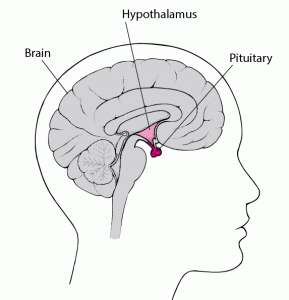How is Traumatic Brain Injury Classified?
- Traumatic Brain Injury (TBI) occurs when there is a sudden injury to the head, such as a concussion, resulting in damage to the brain. This damage can range from producing mild and temporary consequences to severe and long-lasting effects that can potentially permanently reduce various cognitive functions.
- When a concussion occurs, there are a myriad of physiological consequences that ensue within the brain, leading to headaches, impaired cognition, and other common symptoms that are often associated with this form of injury. The cellular mechanisms and structures affected by the impact include the increased flux of various key ions, energy deprivation, cell death, and damage to neurons that results in a lack of neuronal communication throughout the brain. The duration of these impairments can range from acute to chronic, as numerous factors, including recovery time and repeated trauma, dictate the course of the injury.
The Hypothalamus and the Pituitary Gland

- The two main players involved within the relationship between TBI and the menstrual cycle are undeniably the brain regions of the hypothalamus and the pituitary gland. A vital role of the hypothalamus and pituitary gland is to control the functioning and regularity of the menstrual cycle. The hypothalamus triggers the pituitary gland to synthesize and release specific hormones that prompt the ovaries to make estrogen and progesterone. Estrogen and progesterone will then prepare the endometrium for pregnancy until fertilization occurs. If fertilization does not occur, estrogen and progesterone levels decrease, resulting in the shedding of the endometrium, otherwise known as menstruation.
- Since the pituitary gland and hypothalamus are located in the inferior aspect of the brain and unprotected by layers of brain tissue, these brain structures are at greater risk of damage from trauma from when an injury to the brain does indeed occur.
- Injury to this region of the brain often results in hypopituitarism, a phenomenon in which the pituitary gland is unable to properly synthesize and release the necessary hormones for adequate bodily functioning. In a study with 1,000 TBI patients, hypopituitarism occurred in 27.5% of the cases. This finding demonstrates the high probability of endocrine malfunctioning following TBIs as a result of damage to the pituitary gland and consequent hypopituitarism.
Now What is the Relationship Between TBI and the Menstrual Cycle?
- One of the most notable effects of endocrine disruption is the impact on the routine pattern of the menstrual cycle. Both irregularities in the menstrual cycle and amenorrhea (absence of menstruation) have been shown to be a primary consequence of damage to the pituitary gland from TBI. This damage results in the hypopituitarism state mentioned above, in which there is a lack of sufficient estrogen and progesterone that can sustain a normal, regular menstrual cycle.
- This finding is strengthened by the fact that a common consequence of pituitary gland tumors in women is the symptom of amenorrhea.
- Other key findings:
- Research has shown a correlation between the duration of amenorrhea and severity of brain injury, as more severe TBIs result in a longer period of amenorrhea and vice versa.
- Many women who have experienced one or more TBIs report a greater intensity of menstrual cramps during menstruation following the injury.
Looking Ahead
- As novel guidelines and options for treatment continue to advance within the realm of TBIs, the consequences of endocrine disturbances as a result of brain damage, including amenorrhea and menstrual cycle irregularities, should be further recognized and researched.
